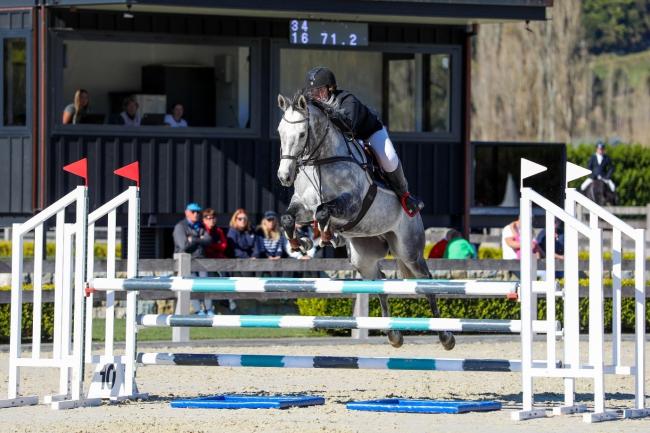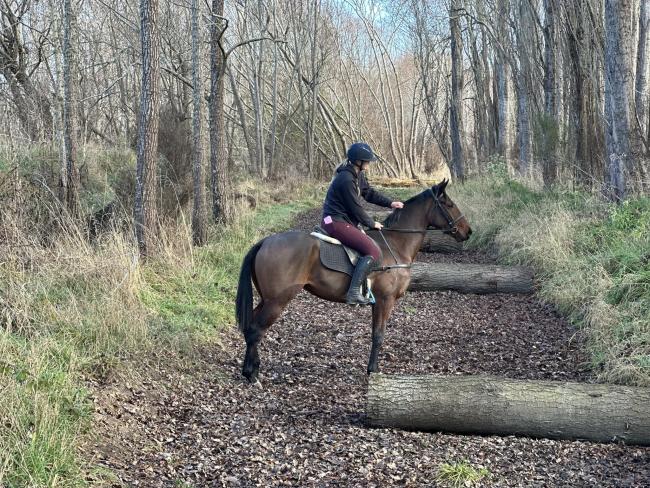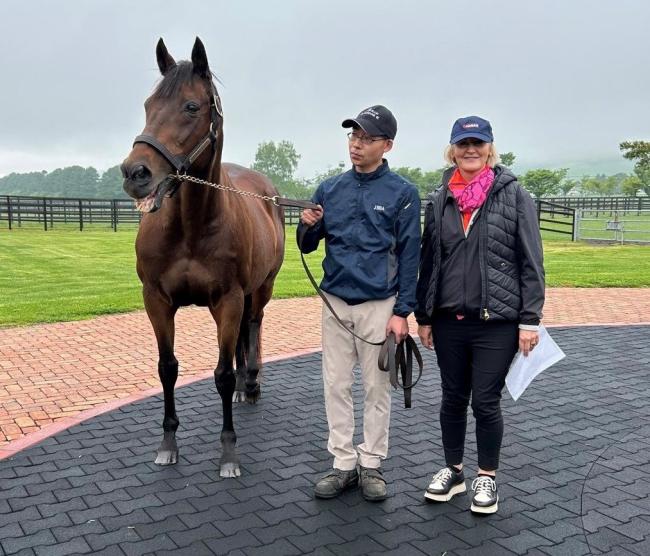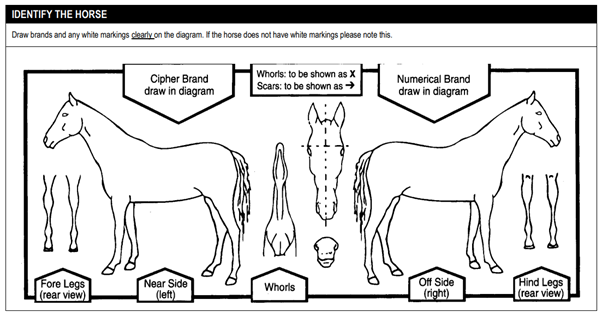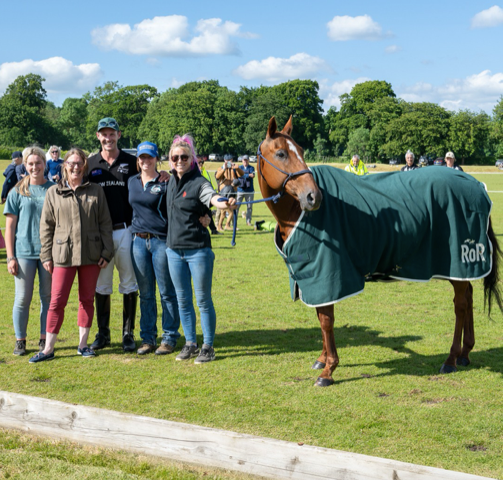We are well and truly in the midst of winter and though the days are shorter we all still find the time to work and care for our horses.
This third edition of the Thoroughbred Welfare Advocate celebrates those doing great things with their thoroughbreds and will hopefully provide further motivation to those considering a thoroughbred as their mount of choice as they look towards the new competitive season.
Over the last few months we have continued our collaboration with international breeding and racing jurisdictions. I was fortunate enough to travel to Japan to attend the International Thoroughbred Breeders’ Federation Tokyo Conference with NZTBA CEO Nick Johnson.
This was an incredible opportunity to network with other countries facing similar challenges and hear what solutions other jurisdictions were working towards. You can read more about the conference below.
Thoroughbred Welfare Co-ordinator Tracey Oakes and myself also tuned into the Toronto 2024 Global Summit for Equine Safety and Technology webinar and the Lexington Equine Safety and Welfare webinar. Once again they highlighted that worldwide, we all face similar challenges and pressures to ensure the sustainability of the product we produce.
It is important we continue to learn from each other as we navigate a changing society and economic landscape and also continue to celebrate how wonderful and versatile the thoroughbred is.
Continuing with the global theme, NZTR has been accepted as a member of The International Forum for the Aftercare of Racehorses (IFAR) - available for racing and aftercare organisations and individuals who embrace the mission, objectives, and values of IFAR as set forth in its Membership Charter. You can read their latest newsletter here.
You might have seen our article featured in Raceform this month highlighting our upcoming Off the Track Thoroughbred clinics and the effort trainer Pam Gerard puts into ensuring the horses in her stable have a good foundation to prepare them for rehoming once they have completed their racing careers. An extract of this article is below and I would like to applaud Pam, and her supportive owners, for the industry standard they are setting through their responsible rehoming.
The market for rehoming thoroughbreds typically slows in winter, likewise the equestrian market as a whole, and this year is no different. To acknowledge this trend we have communicated to owners and trainers that they may need to arrange for agistment until space becomes available at a retrainer’s property.
I hope you enjoy this edition of the Thoroughbred Welfare Advocate. It was developed to create a better understanding between the equestrian and thoroughbred communities. We are bonded by a love of the horse and by working together to create optimum outcomes for our thoroughbreds we will ensure the sustainability of our industry for years to come.
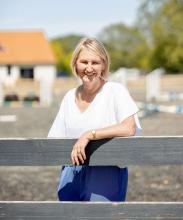
Justine Sclater
Head of Thoroughbred Welfare and Sustainability
M: 021 433 107
E: justine.sclater@nztr.co.nz
THE INTERNATIONAL SOCIETY FOR EQUITATION SCIENCE CONFERENCE 🧪
The International Society for Equitation Science (ISES) held their annual conference in March with 175 ‘in person’ attendees and 150 ‘virtual’ delegates. There were international speakers and conference delegates attending from 18 different countries.
NZTR were proud to sponsor the ‘off the bit’ sundowners social event on the second day of the conference. This day took a ‘field trip’ approach with attendees visiting a range of establishments in the area known for placing a good life for a horse as a priority in their operations. These included Cambridge Stud, EventStars, Takapoto showjumping yard, the Cambridge RDA and Pike Racing Stables.
Professor Nat Waran from Companion Animals New Zealand spoke about the work she led in developing a proposed welfare strategy with a new vision of a Good Life for Horses in Sport.
As Chair of the independent Equine Ethics and Wellbeing Commission set up in June 2022 by the FEI (the international governing body of equestrian sports), Professor Waran led the 10-person Commission who were tasked with developing a final report with recommendations to safeguard equine welfare and the future involvement of horses in sport.
The ISES has produced a series of podcasts highlighting the latest breakthroughs and discoveries in equitation science. These can be found here.
OWNERSHIP RESPONSIBILITIES 📖
RESPONSIBLE REHOMING
Matamata trainer Pam Gerard takes as much pride in seeing her horses thrive in their lives after racing as when they win on the track and makes every effort to ensure they get that opportunity.
“You take animals on for a lifetime, not a short time,” she said. “It is a duty of care and your responsibility to make sure a horse has the best life it can. I think there are great opportunities out there for horses to have a really good life after racing.”
SPONSORSHIP 🐎
SECOND CAREER SPONSORSHIP - MATAMATA EQUESTRIAN GROUP
In March the Matamata Equestrian Group hosted their annual horse trial. Over 230 horses competed and 93 were thoroughbreds, several heading home with top tier prizes.
Next year NZTR will support the Matamata Equestrian Group to hold a class for thoroughbreds that are novices in their equestrian career. This will be a great incentive for eventers to select an off the track thoroughbred and target an appropriate class early in their second career.
ACKNOWLEDGED RE-TRAINER SPOTLIGHT 💡
Acknowledged Retrainers are selected by NZTR based on their skills and experience, and have a track record of successfully retraining and rehoming thoroughbreds for a wide range of equestrian pursuits. They are supported by a range of initiatives funded by the 1% welfare levy on stakes money.
This month the spotlight is on Acknowledged Retrainer Lisa Wilson.
Q & A
Name: Lisa Wilson
Business Name: Pinoaks Park
Location: North Canterbury
Number of thoroughbreds retrained during the past 12 months: 100 (at time of interview)
OFF THE TRACK THOROUGHBRED CLINICS 🐎
Sponsored by NZTR and the 1% Levy, there will be two clinics held in July to coach riders and their thoroughbreds in a supportive environment.
Both clinics were booked out within 48 hours showing the demand for such initiatives and NZTR will look to hold further clinics in the future.
The North Island Clinic, run by eventers Donna and Elise Edwards-Smith, will be held at Taupō on 13th and 14th July.
The South Island Clinic will be held on the 28th July at the Selwyn Equestrian Centre. Hosted by Lisa Wilson, there will be three coaches available offering private or group lessons. The coaches are Tracey Kovacs (showjumping), Corey Miln (dressage) and Pam Norton (groundwork and liberty).
There is also a rebate available for those who have purchased a thoroughbred via an NZTR Acknowledged Retrainer.
INTERNATIONAL NEWS 🌏
2024 ITBF CONFERENCE, TOKYO
70 ITBF attendees from 21 of 27 member countries were present at the 2024 ITBF Conference in Tokyo. This was hosted by the JBBA (Japan Bloodhorse Breeders’ Association).
NZTR Head of Welfare and Sustainability Justine Sclater, who attended as a speaker, was provided with the opportunity to attend both the Japanese Oaks and Derby, a trip to Hokkaido visiting breeding farms Northern Horse Park, Shadai Stallion Station, Darley Japan, JBBA Stallion Station and JRA's Training and Research Centre.
The JBBA’s approach to stallion welfare was a key takeaway that Justine particularly admired, not only are their stallions ridden daily but also their older retired stallions remain on the farm and are used for training purposes and their longevity is celebrated. They paraded alongside their current stallions line-up and photos were taken with old favorites Makfi and Johannesburg now in his late twenties.
HEALTH AND RESEARCH 🔍
Parasite resistance, in many species of animal, is of international concern. Did you know…
- Up to 70% of equine properties in New Zealand now experience drench resistance
- 50% of horses are classed as low shedders and as such require only 2 treatments per year
- 30% are classed as moderate, requiring 3 treatments per year
- 20% fall into the high category, requiring 4 treatments per year
- The Waikato branch of the New Zealand Thoroughbred Breeders’ Association have been working in this space to find the most effective programme to manage parasite resistance.
Worm-Ed has developed an evidence-based, scientific approach to deworming strategy and provides horse-health services to owners all around the country. They use the Parasight System which is up to 20 x more powerful than standard laboratory fecal egg counts.
You can find out more about Worm-Ed here.
HOW TO GUIDE 📷
HOW TO IDENTIFY A THOROUGHBRED
All registered thoroughbreds have a microchip implanted. It is located midway down the crest of the neck, roughly an inch under the base of the mane. Most vets carry a microchip scanner with them or there will be one at their practice. You can also purchase one here.
If the chip cannot be located, sometimes they do move, the identification of the horse can be requested from NZTR using the brands and the markings of the horse.
To do this you must complete this form and send it to traceability@nztr.co.nz.
Once you have a horse’s microchip number or racing name you can search for its breeding and racing history via the Stud Book which can be found here.
FIRST AID FOR HORSES🐴
AN OVERVIEW OF 10 COMMON CONDITIONS
Equine Medicine Specialist Dr Laura Nath takes a closer look at some of the common injuries and illnesses that need to be managed from time to time to ensure the health and comfort of the horse.
Credit: Victoria Racing Club
WALL OF FAME - supported by DUNSTAN HORSEFEEDS ⭐
We want to hear your stories about your thoroughbred in their life after racing. If you wish to share, please contact us with a recent photo and story of your horse at traceability@nztr.co.nz.
On 8th June New Zealand came from behind to beat England 7-6 in the final chukka of the Golden Jubilee match at Beaufort Park during the Gloucestershire Festival of Polo in England.
It was even more exciting to see the award for the Best Playing Thoroughbred go to New Zealand-bred mare Luna, ridden by Jimmy Wood.
Luna (7.m Super Easy x Striking Asset), who raced as Moonstrike, was bred by Goodwood Stud Ltd and is owned by Jimmy Wood’s father Roddy Wood. As a racehorse Luna was unplaced in 3 attempts.
IN CASE YOU MISSED IT..
The 1% Newsletter, covering the spend of the welfare levy in the third quarter, was published in June. As of 30th April, the spend of the 1% fund for the current season was $617,314.89, with $210,405.33 of this allocated during the third quarter. The season allocation is $908,000.
You can read The 1% Newsletter here.
Thank you for reading the winter issue of NZTR's Thoroughbred Welfare Advocate, we hope you enjoyed the content and are looking forward to our updates moving forward.
The NZTR Welfare Team




